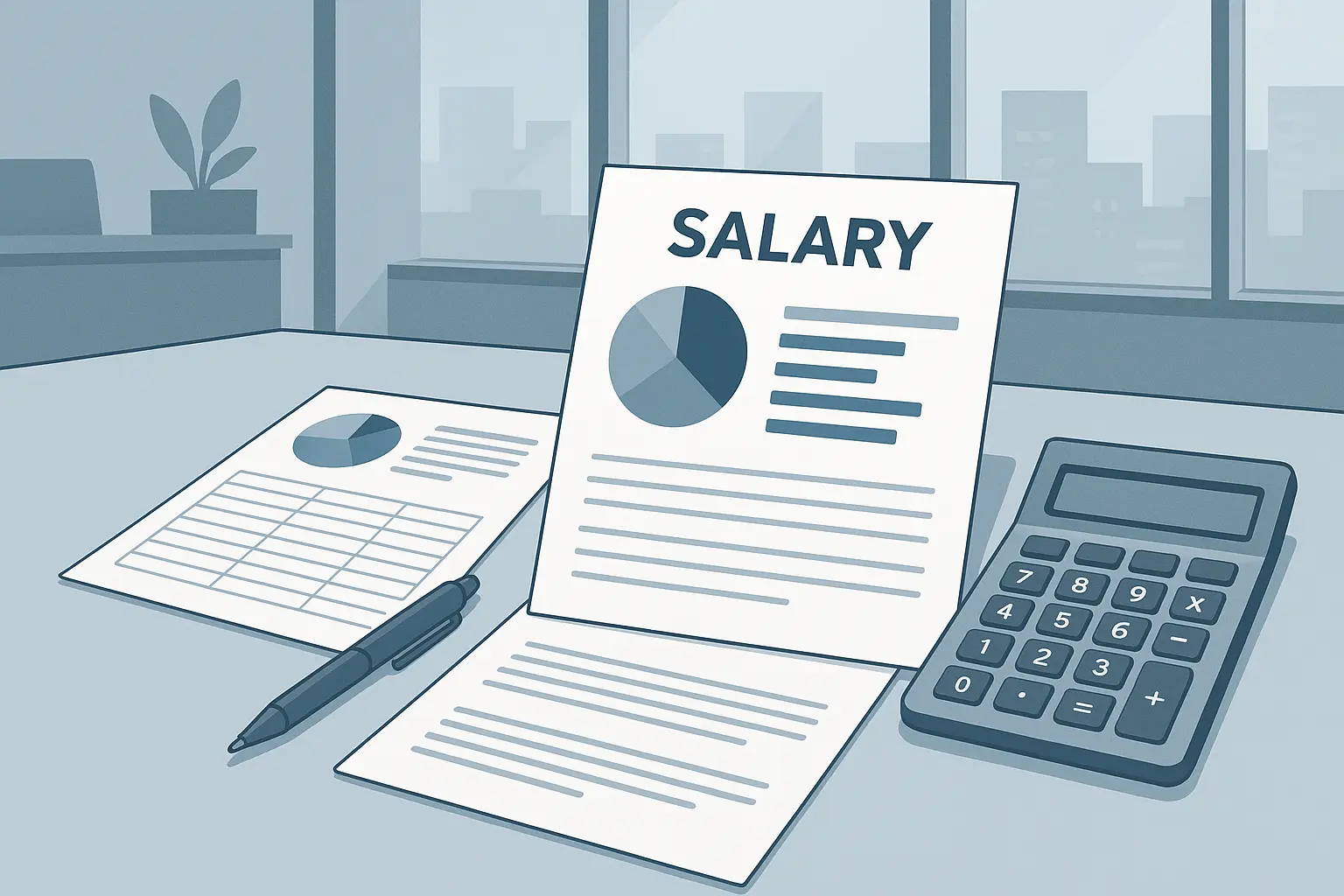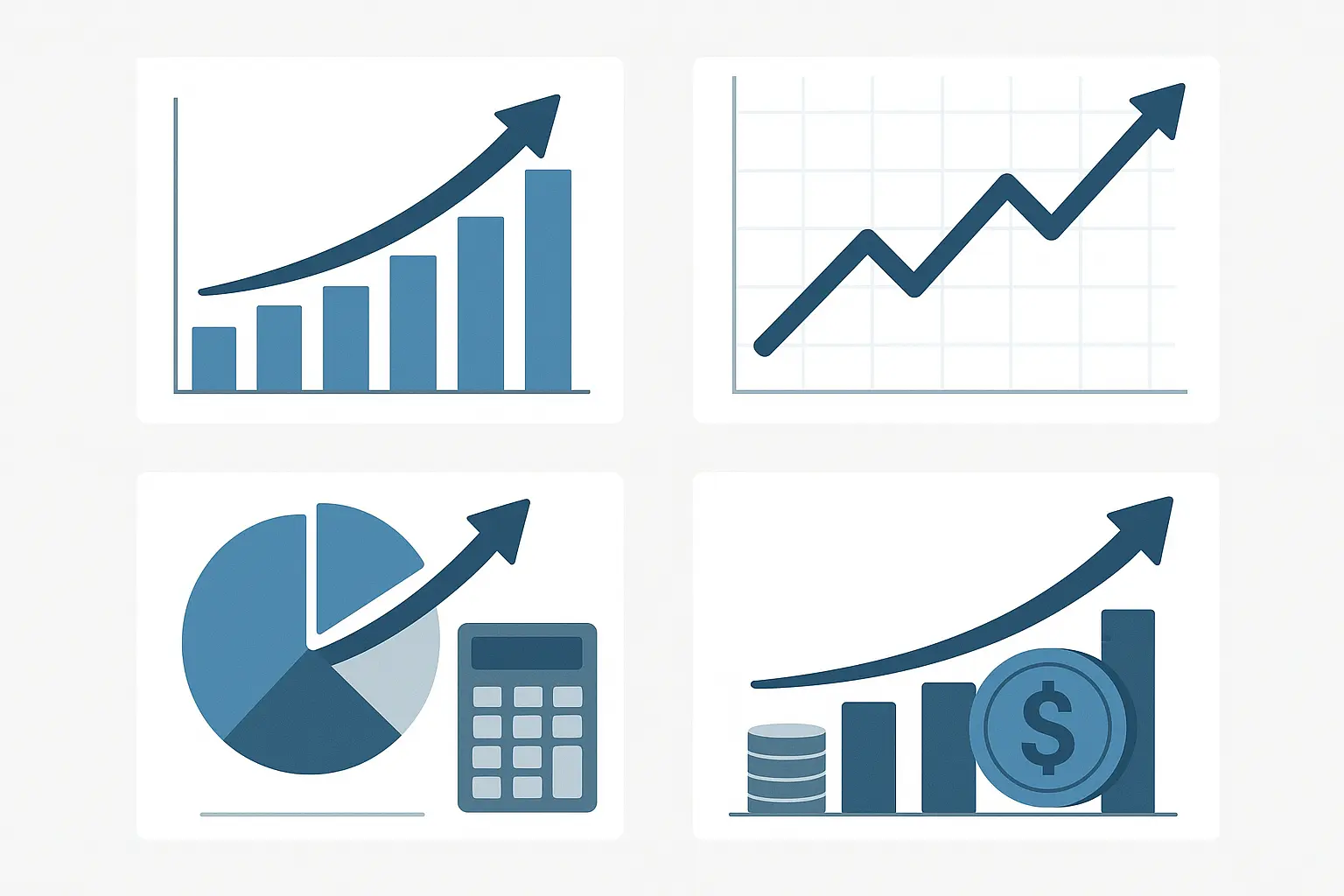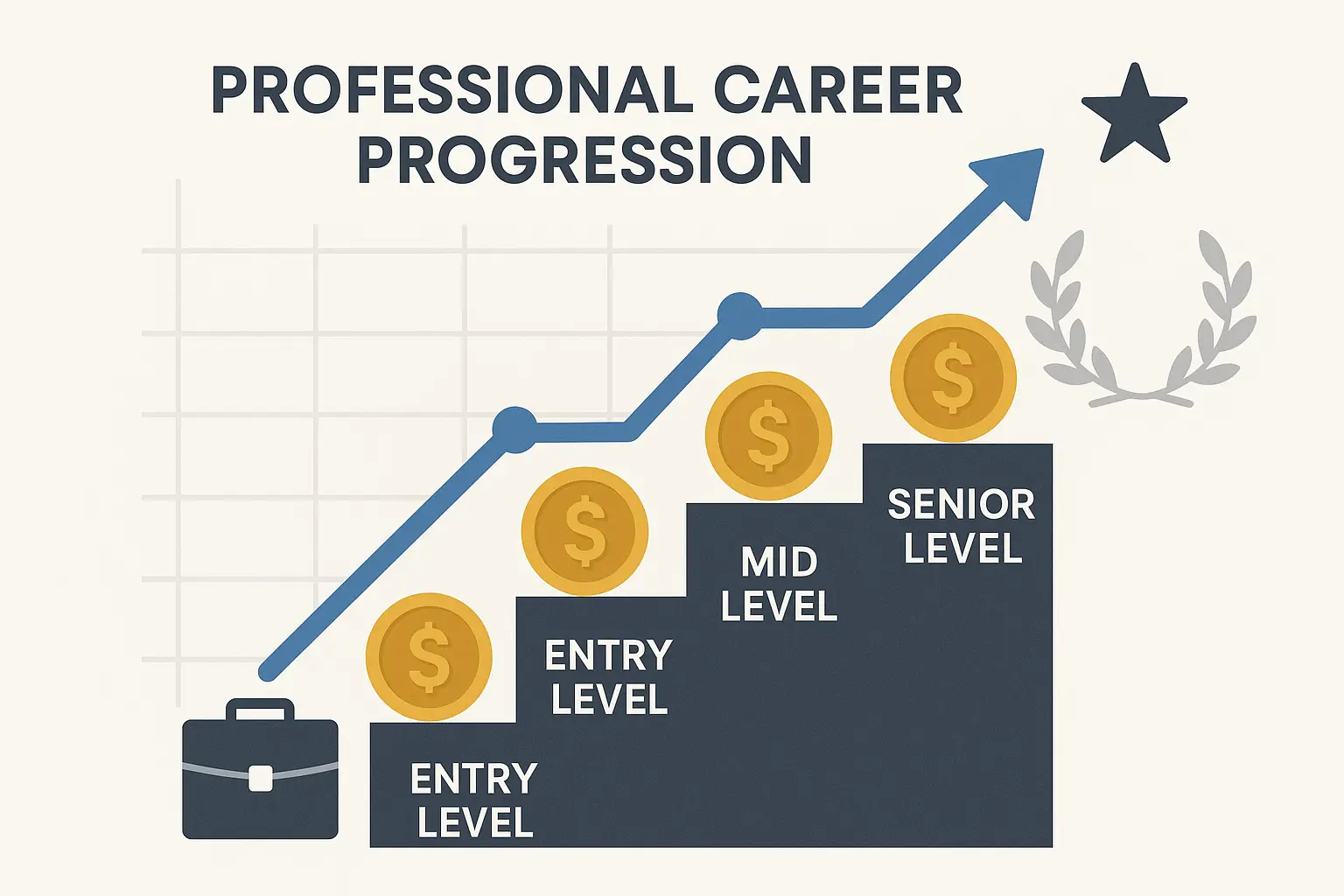When I first started looking into hedge fund careers, everyone told me about the massive paychecks. What they didn’t mention? Your hedge fund portfolio manager salary is basically a rollercoaster tied to how well you pick stocks. While the headlines focus on billion-dollar funds and celebrity managers, the reality of hedge fund compensation involves complex structures that can make or break your financial future.
Table of Contents
-
The Real Numbers: What You’ll Actually Make
-
How Hedge Fund Pay Actually Works (Spoiler: It’s Complicated)
-
Your Career Path and When the Money Gets Good
-
Breaking In: The Steps Nobody Talks About
-
Industry Changes That Could Tank Your Paycheck
-
The Bottom Line
TL;DR
Think of your base salary as rent money – it keeps the lights on while you prove you can actually make money for rich people. Starting portfolio managers earn $150K-$300K base, but the real money comes from performance bonuses that can multiply that by 5x or more. Senior PMs pulling in $2-5 million annually? That’s when performance fees kick in. Geographic location matters more than you’d think – New York pays 20-30% premiums, but your cost of living eats half of it. The traditional path takes 5-8 years with massive salary jumps at each level, and fund size directly impacts your wallet – $1B+ funds pay 30-50% more than smaller shops.
The Real Numbers: What You’ll Actually Make
Here’s the breakdown everyone wants to know, without the corporate fluff:
Starting Out (0-3 years): $150K-$300K base salary
-
Your survival money while you prove yourself
-
Bonuses range from “meh” to “holy shit” ($50K-$500K)
-
Total comp: $200K-$800K if you don’t screw up
Mid-Level (3-7 years): $300K-$750K base salary
-
This is where bonuses actually start mattering
-
Performance fees can hit $500K-$2M in good years
-
Total comp: $800K-$3M+ when you’re crushing it
Senior PM (7+ years): $500K+ base salary
-
Base becomes almost irrelevant compared to performance fees
-
Carried interest can generate millions in great years
-
Total comp: $2M-$25M+ for the heavy hitters
The catch? Those big numbers only happen when you’re consistently picking winners. Have a bad year, and you’re back to living on base salary.
Geography: Where You Work Matters More Than You Think
New York and London command serious premiums – we’re talking 20-30% bumps over Chicago, Boston, or even San Francisco. But here’s the catch: that premium doesn’t always cover the cost-of-living difference.
According to Wall Street Oasis data, analysts in New York and San Francisco make about 25-30% more than their counterparts in Boston and Washington DC, and 40% more than those in Chicago.
I’ve seen talented managers relocate to Singapore or Hong Kong for packages that rival New York numbers while offering better quality of life. Emerging market funds often overpay to attract Western talent, creating interesting arbitrage opportunities for your career.
Before you drop $200K on that MBA, understanding the cost of advanced education becomes crucial when evaluating whether it’ll actually get you there faster.
How Hedge Fund Pay Actually Works (Spoiler: It’s Complicated)
The real money isn’t your salary – it’s your cut when the fund wins big. Think of it like being a restaurant server: tips (performance fees) matter way more than hourly wage (base salary).
Base Salary: Your Safety Net
Think of your base salary as rent money – it covers your living expenses while you prove you can actually make money for investors. According to Mergers & Inquisitions research, base salaries are often capped at less than $200K because no hedge fund wants to pay much more until performance is proven.
Fresh portfolio managers shouldn’t expect to get rich from base salary alone. Most funds pay newcomers somewhere in that $150K-$300K range, though prestigious shops in Manhattan might push closer to the upper end. Your MBA pedigree and previous buy-side experience heavily influence where you land.
Once you’ve got 5+ years under your belt and some solid performance numbers, base salaries jump considerably. We’re talking $300K-$750K territory, depending on your track record and the fund’s assets under management. Senior PMs with strong client relationships often negotiate toward the higher end.
Performance Fees: Where Fortunes Are Made
Here’s where it gets interesting: carried interest is your cut of the profits. When the fund makes money above its high-water mark, you get a slice. When it doesn’t, you’re living on that base salary.
Most funds allocate 10-25% of profits above the high-water mark to the investment team, with senior PMs getting the lion’s share. Research shows that total team compensation is between 10% and 20% of their P&L, depending on the fund size, structure, and the team’s split of the total AUM.
The high-water mark provision protects investors but creates pressure for consistent performance. You can’t just have one great year and coast – you need to stay above your previous peak to keep earning carry. It’s both motivating and stressful.
Annual Bonus Mathematics
Annual bonuses vary wildly – anywhere from 50% to 500% of your base, sometimes more. The calculation involves your individual performance, fund returns, risk management, and how much new money you helped raise.
Here’s a real example: Consider a portfolio manager at a $500 million fund who generates a 3% return ($15 million profit). After $1 million in expenses, the net P&L is $14 million. If the team receives 15% of net P&L ($2.1 million), and after paying junior staff, the PM might take home $1.2 million total compensation – with only $150K-$200K as base salary and over $1 million as bonus.
Risk-adjusted performance matters more than you’d think. A PM who generates 15% returns with low volatility often gets rewarded better than someone posting 25% with huge drawdowns. Funds care about Sharpe ratios and maximum drawdown figures when bonus time arrives.
Your Career Path and When the Money Gets Good
The path is pretty standard, but here’s what they don’t tell you about each level:
|
Position Level |
Base Salary Range |
Bonus Range |
Total Compensation |
Years Experience |
Reality Check |
|---|---|---|---|---|---|
|
Junior Analyst |
$60K-$100K |
$30K-$100K |
$90K-$200K |
0-2 years |
You’re basically an Excel monkey |
|
Analyst |
$100K-$150K |
$50K-$150K |
$150K-$300K |
2-4 years |
Your ideas might actually matter |
|
Senior Analyst |
$150K-$250K |
$75K-$500K |
$225K-$750K |
4-7 years |
Where most people get stuck |
|
Portfolio Manager |
$200K-$500K |
$300K-$2M+ |
$500K-$3M+ |
7+ years |
You’re finally playing with real money |
|
Managing Director |
$500K-$1M |
$1M-$20M+ |
$2M-$25M+ |
10+ years |
The pressure is insane |
Starting at the Bottom: Analyst Reality
Analyst positions are your entry point, typically paying $100K-$200K base with bonuses ranging from $50K-$300K. The wide bonus range reflects performance differences and fund success. Top analysts at successful funds can out-earn mediocre VPs at struggling shops.
Your analyst years are about building credibility through solid research and investment ideas. Document everything – your stock picks, sector calls, and risk assessments. This track record becomes crucial when you’re ready to move up or move out.
The Middle Ground: Where Politics Kicks In
Associates and VPs occupy the sweet spot where compensation really accelerates. Base salaries jump to $200K-$400K, but bonuses can hit $500K-$1M+ at successful funds. You’re contributing directly to investment decisions while learning portfolio construction.
This level is where you start getting P&L responsibility for specific sectors or strategies. Your compensation becomes more directly tied to the performance of your book, creating both opportunity and pressure. Many people plateau here, which isn’t necessarily bad given the pay.
For professionals considering whether additional credentials are worth the investment, understanding if advanced education pays off becomes crucial when competing for these mid-level positions.
Senior Level: Where the Real Money Lives
Managing Directors with full P&L responsibility are where the serious money starts. Base salaries hit $500K-$1M, but that’s almost irrelevant compared to performance fees. In great years, total comp can reach $5-20 million or more.
The pressure at this level is intense. You’re responsible for significant AUM, client relationships, and often managing junior staff. Your decisions directly impact fund survival, and your compensation reflects that responsibility. Bad years can be brutal both financially and professionally.
The ultimate goal is equity participation in the management company itself. This creates wealth beyond annual compensation through business appreciation and ongoing revenue streams. Partners at successful funds build generational wealth through these ownership stakes.
Breaking In: The Steps Nobody Talks About
Want to become a PM? You need three things: the right degree, a track record of picking winners, and the political skills to survive office dynamics.
Education: What Actually Matters
Most successful PMs have MBAs from target schools, though I’ve met plenty who succeeded with different backgrounds. What matters more is demonstrating analytical thinking and investment acumen. A finance or economics undergrad plus strong work experience can substitute for the MBA in many cases.
Don’t get caught up in credential collecting. The CFA helps, especially early in your career, but funds care more about your investment ideas and track record. I’ve seen Harvard MBAs struggle while state school grads with great stock picks get promoted quickly.
When evaluating educational investments, professionals should consider maintaining proper documentation of their credentials throughout their career progression.
Essential Education Checklist:
-
Bachelor’s degree in finance, economics, math, or related field
-
MBA from target school (preferred but not required)
-
Strong GPA (3.5+ for competitive positions)
-
CFA, FRM, or CAIA designations enhance credibility
-
Programming skills (Python, R, SQL) are becoming essential
Building Your Track Record
Start documenting your investment ideas immediately, even as an analyst. Keep detailed records of your recommendations, rationale, and outcomes. This becomes your calling card when interviewing for PM roles or starting your own fund.
A successful analyst might maintain a detailed spreadsheet tracking 50+ stock recommendations over three years, showing a 65% success rate with average winners up 23% and average losers down 8%. This documented performance, combined with detailed investment thesis for each pick, becomes powerful evidence of stock-picking ability during interviews.
Attribution analysis is crucial. Don’t just track returns – understand what drove performance. Was it stock selection, sector allocation, or market timing? Funds want to see that you understand your edge and can replicate it consistently.
For professionals building their credentials, understanding how to properly display certificates and diplomas in office settings can enhance professional credibility during client meetings and interviews.
Networking: The Unspoken Truth
Here’s what nobody tells you about networking: the best connections happen when you’re NOT looking for a job. Help people when you don’t need anything, and they’ll remember when you do.
The hedge fund world is smaller than it appears, and reputations travel quickly. Being known as someone who generates good ideas and manages risk well opens doors throughout your career. Prime brokers, institutional investors, and other managers all play roles in your long-term success.
Industry conferences and events matter more than you’d think. Invest time in these relationships early – they become crucial for career advancement and future fund-raising efforts.
Industry Changes That Could Tank Your Paycheck
The hedge fund industry is evolving fast, and these changes directly impact your earning potential.
Fee Compression is Real
The days of easy 2% management fees are largely over. Most institutional investors now demand 1-1.5%, with some pushing even lower. This fee compression directly impacts your base salary potential since funds have less guaranteed revenue to work with.
Performance fees are under attack too. The traditional 20% is becoming 15% or even 10% for larger institutional mandates. Hurdle rates are rising, and high-water marks are becoming more stringent. Your carried interest potential is definitely being squeezed.
Fund Size Matters More Than Ever
Fund size matters enormously for compensation. Managers at $1B+ funds typically earn 30-50% more than those at smaller shops. The math is simple: larger funds generate more fees and can afford higher compensation packages.
|
Fund AUM Size |
PM Base Salary |
Bonus Potential |
Total Comp Range |
Job Security |
|---|---|---|---|---|
|
<$100M |
$150K-$300K |
$100K-$1M |
$250K-$1.3M |
Low |
|
$100M-$500M |
$200K-$400K |
$200K-$2M |
$400K-$2.4M |
Medium |
|
$500M-$1B |
$250K-$500K |
$500K-$3M |
$750K-$3.5M |
Medium-High |
|
$1B-$5B |
$300K-$600K |
$1M-$5M |
$1.3M-$5.6M |
High |
|
$5B+ |
$400K-$750K |
$2M-$10M+ |
$2.4M-$10M+ |
High |
But bigger isn’t always better. Smaller funds might offer more upside through equity participation or carried interest percentages. You need to weigh guaranteed compensation against potential upside when evaluating opportunities.
Strategy Matters for Your Wallet
Strategy choice affects your earning potential significantly. Long/short equity managers typically out-earn fixed income or macro folks due to higher fee generation and performance volatility. But this can flip during different market cycles.
Credit strategies have gained popularity post-2008, often offering steadier (if lower) returns and compensation. Quantitative strategies are growing rapidly, requiring different skill sets but offer competitive pay packages. Consider where the industry is heading when choosing your focus.
New Fee Structures: Risk or Opportunity?
Creative fee structures are emerging as funds compete for capital. Some adopt tiered performance fees (higher percentages above certain return thresholds), while others go performance-only with no management fees. These arrangements can actually increase your earning potential if you’re confident in your abilities.
A portfolio manager at a performance-only fund might earn 25% of all profits above a 6% hurdle rate, compared to the traditional 20% above high-water mark. In a strong year generating 15% returns on $200M AUM, this could mean $4.5M in compensation versus $3.6M under traditional structures.
Revenue-sharing models are interesting too – you get a percentage of all fees generated by assets you help raise or manage. This creates different incentives than traditional structures and can be lucrative for managers with strong client relationships.
Performance Persistence: The New Reality
Consistency trumps home runs in today’s environment. Managers with steady 3+ year track records get premium packages and job security that flashy one-year wonders don’t. Institutional investors have learned to value predictable performance over lottery ticket returns.
This shift toward consistency affects how you should think about risk-taking and career development. Building a sustainable edge and managing downside risk becomes more important than swinging for the fences. Your compensation structure should reflect this reality.
The Bottom Line
Look, hedge fund money is real, but so is the stress. You’ll work 70-hour weeks, deal with impossible clients, and your paycheck depends on factors you can’t control. Your hedge fund portfolio manager salary can range from “comfortable” to “generational wealth,” but it all hinges on performance.
The path requires significant dedication and the ability to perform under pressure. Fee compression and institutional demands are reshaping the industry, but opportunities remain substantial for those who can generate consistent alpha. Focus on building a documented track record, developing specialized skills, and understanding that your compensation will increasingly depend on performance rather than guaranteed payments.
For those considering this career path, building professional credibility matters at every stage. Whether you’re networking at industry events, interviewing for senior positions, or displaying credentials in your office, having proper documentation of your educational achievements is crucial. Understanding the importance of maintaining proper academic documentation throughout your career becomes especially important in the hedge fund industry where credentials and track records are constantly scrutinized.
The hedge fund industry continues evolving, but for those who can adapt and excel, portfolio management remains one of the most lucrative career paths in finance. Just remember: the biggest paychecks go to those who can consistently prove their worth when billions of dollars are on the line.
If you’re okay with that trade-off, it’s an incredible career. If not, there are easier ways to make good money in finance.










